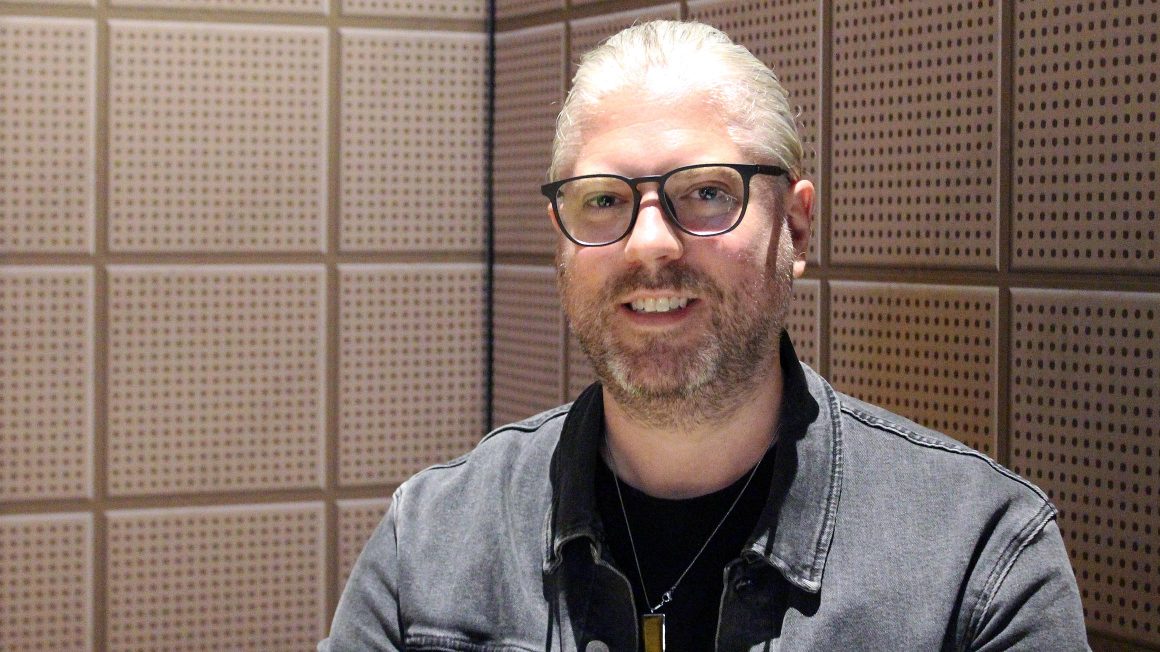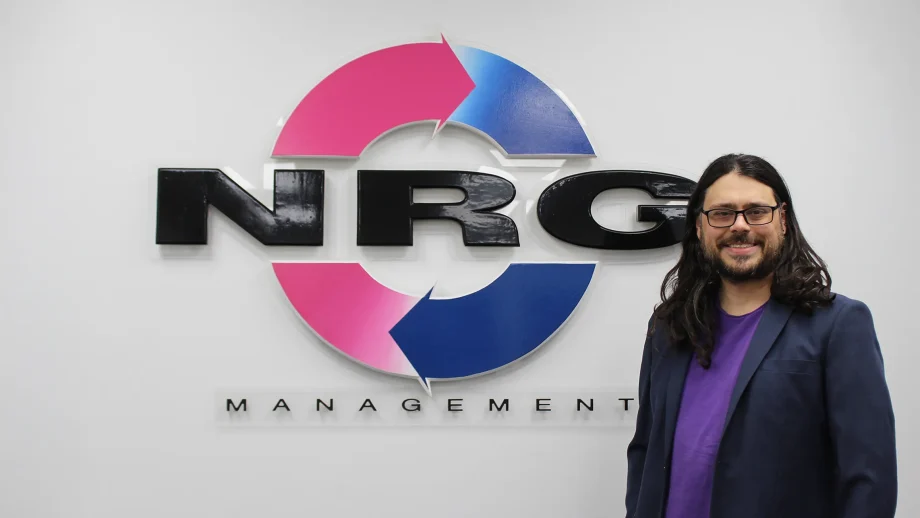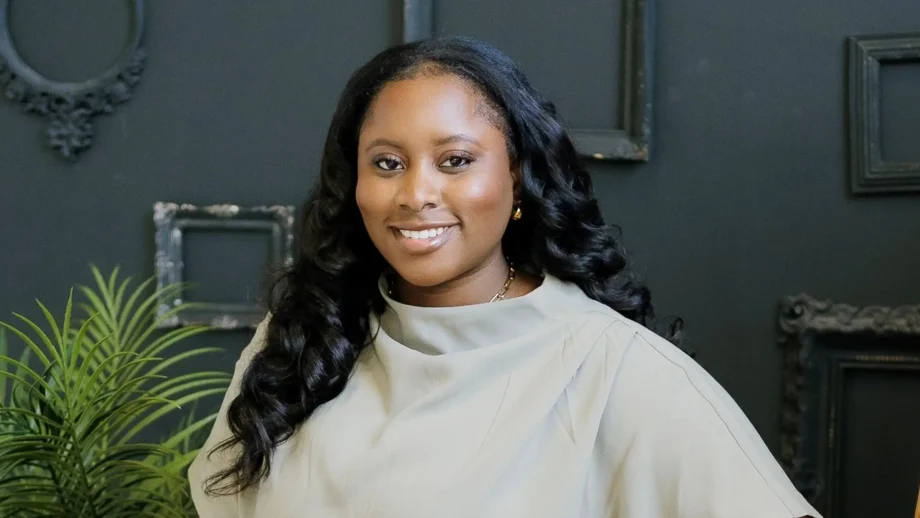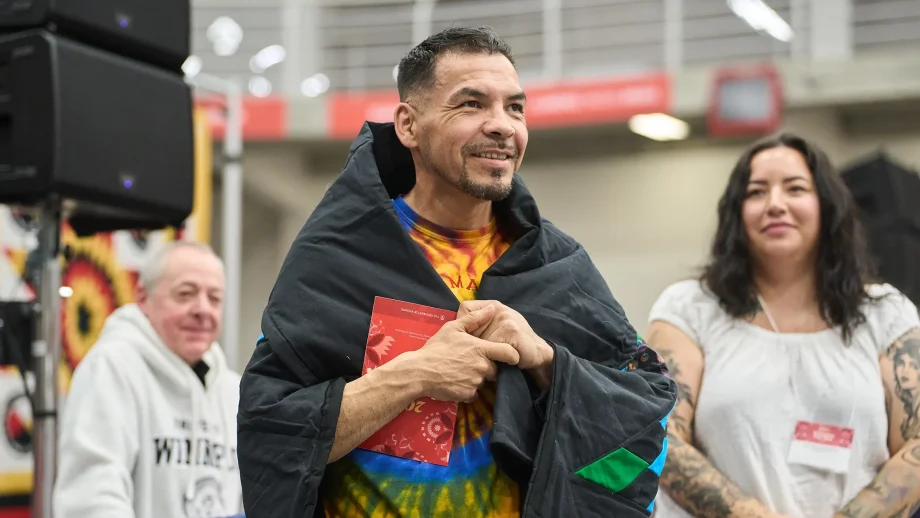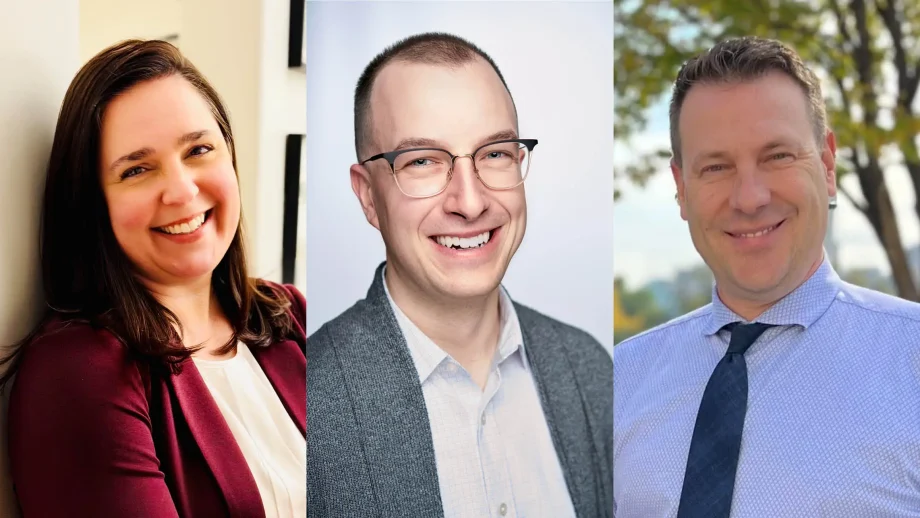“I knew from an early age that I was Queer. That I am Queer,” said Dr. Scott de Groot (BA Hons 07, MA, PhD). It is a truth that has shaped both his personal journey and professional path. Scott’s interests in queer issues began in high school, where he wrote for local LGBT newsmagazine Swerve. Fascinated by media coverage and debates around same sex marriage and HIV activism, Scott delved into community journalism in a way he thought might lead to a professional career. This passion followed him to UWinnipeg where he contributed to The Uniter throughout his undergraduate degree.
Scott began his studies at UWinnipeg with the intent to major in political science and international development. Over time, he was increasingly drawn to courses in history – especially queer history. Encouraged by his professors, he immersed himself in research that connected him more deeply with his community. “UWinnipeg was such a nourishing environment for someone with my interests. It was also really exciting for me to feel a part of a really engaged activist and intellectually vibrant community.”
After completing his honours degree, Scott pursued his graduate studies at Queen’s University, where his research evolved from local queer social history to a broader transnational exploration of the gay liberation movements of the 1970s.
I feel as though Queer history is kind of bound up with my scholarly DNA.
Dr. Scott de Groot
“It was a great period of time in my life,” said Scott, who held scholarships in Canada, United States, United Kingdom, and Australia. His research abroad not only deepened his understanding of queer activism but allowed him to experience the world through a scholarly and personal lens.
When Scott defended his PhD, he says the academic job market was not in a good place and he faced a period of uncertainty. He returned to UWinnipeg to research alongside Indigenous historian Dr. Mary Jane McCallum, and in 2017, he was awarded the inaugural Riley Postdoctoral Fellowship.
“I feel as though Queer history is kind of bound up with my scholarly DNA,” said Scott, crediting UWinnipeg as the foundation of his academic and activist trajectory.
Canadian Museum for Human Rights
In 2019, Scott spotted a rare and powerful opportunity at the Canadian Museum for Human Rights (CMHR) to lead the creation of a multi-million-dollar exhibition on Canada’s LGBT Purge – a dark chapter in Canadian history during which 2SLGBTQI+ individuals in the military, RCMP, and federal public service were targeted and dismissed under the false belief their sexuality posed a national security risk.
However, the path to truth and justice was anything but smooth. The project faced major setbacks. A global pandemic halted research and revelations in 2020 that CMHR had censored queer content led to public outcry and a pause in exhibition development.
Amid the crisis, queer and allied staff at CMHR formed the Rainbow Equity Council, advocating for institutional change and ensuring censorship would never happen again. Their efforts led to renewed trust, and by late 2021, the exhibition funding body (The Purge Fund) recommitted to the project. Scott says The Rainbow Equity Council still exists today and is a vibrant space of support and solidary for the 2SLGBTQ+ staff at CMHR.
Love in a Dangerous Time: Canada’s LGBT Purge
In January 2025, the exhibit, Love in a Dangerous Time: Canada’s LGBT Purge opened. Spanning 4,000 square feet, this blockbuster exhibit is devoted to the queer activism that dismantled Canada’s LGBT Purge and highlights the psychological and professional toll it took on thousands. This exhibit was made possible in part by a $145 million settlement from a 2018 class-action lawsuit by purge survivors.
Scott emphasizes the importance of representation in cultural institutions, and for there to be inclusion. “This exhibition is more timely and more relevant than it would have been five years ago,” said Scott citing the rising backlash against trans folk and 2SLGBTQ+ communities in Canada and abroad. This exhibit is the first major exhibition on queer history and rights to be displayed at any large-scale museum in Canada.
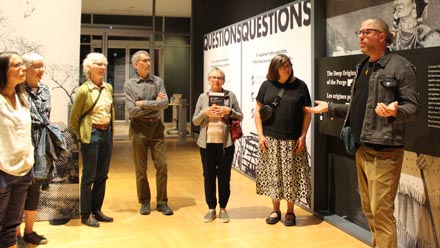
Dr. Scott de Groot touring a group of UWinnipeg alumni through the Love in a Dangerous Time: Canada’s LGBT Purge exhibit at the Canadian Museum for Human Rights.
In addition to artifacts and unclassified government documentation, the exhibit features original artworks by queer artists Shawna Dempsey and Lori Millan, and UWinnipeg alum and filmmaker Noam Gonick (Coll. 89). “I am really proud of the fact that we brought in queer artists to assist in the story telling and representation of this history,” said Scott.
Scott believes the exhibit generates an active dialogue and provides resources for people to have conversations about queer issues in a courageous way. He is now using the exhibit as a teaching tool in a new course at UWinnipeg’s Global College: Special Topics in Human Rights: Representing 2SLGBTQ+ Rights. The course explores how cultural institutions such as museums, monuments, and heritage sites shape public understanding of queer history and 2SLGBTQ+ activism.
“You have to be willing to take some risks and stay connected to the communities that matter to you,” said Scott. “I could’ve played it safe in various ways, but I’m glad that I followed my passions. Community has been very important with respect to my career. I feel gratitude and responsibility towards those who have been so supportive and integral to my journey.”

